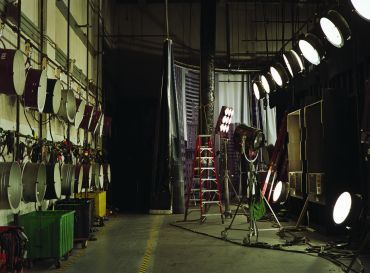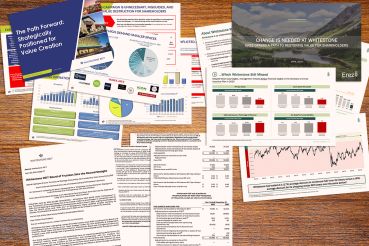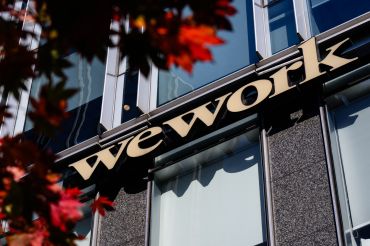CRE Investors Driving ESG Into Greater Focus
By Andrew Coen April 4, 2022 1:00 pm
reprints
As more commercial real estate investors than ever appear to be considering environmental, social and governance (ESG) standards, experts say the post-pandemic climate could prove a watershed for the industry as executives face more scrutiny over their properties.
The rising focus on environmental and clean energy policies in CRE was evident late last year when 60 percent of respondents to brokerage CBRE (CBRE)’s 2021 Global Investor Intentions Survey stated that they had already adopted ESG criteria as part of their investment strategies. Some CRE firms, for example, have committed to net-zero carbon emissions: Heitman by 2030, Nuveen by 2040 and Brookfield (BN) Properties by 2050, according to the CBRE report.
On the financing side, examples of a deeper consideration of ESG in debt and other investment decisions abound.
Acore Capital has made sustainability more of a focus in its lending business of late with the creation of a director of ESG position in January, filled by human resources director Autumn Gibson.
“There is no question ESG is more front and center now,” said Warren de Haan, co-founder of ACORE.
De Haan noted that in addition to ESG initiatives becoming more of an investor requirement, they are also important for the company to create better citizens. He said having an employee dedicated to the issue is important. It can be difficult to measure a firm’s progress on ESG because there are no shared standards nor disclosure rules, and benchmarks can vary by geography.
“I think you’re going to see a lot of companies try and placate their investors by having an ESG program,” de Haan said. “However, very few are actually going to have tools to measure how they are doing. We are committed to making the necessary investments to track and report our progress, providing investors with the transparency they desire.”
Toby Cobb, co-founder of 3650 REIT, said that while ESG has yet to have a material impact on the firm’s CRE loans, some of its large major state pension plan investors, such as the California State Teachers Retirement System, are driving the ship in terms of bringing environmental issues like climate change more to the forefront. He said 3650 REIT has tried to stay in front of the sustainability issue by having an ESG checklist for each of its loans — although it hasn’t given any credit spread breaks yet to borrowers that also incorporate those climate-friendly principles into their businesses, as Fannie and Freddie Mac have done with green financing loans.
“We have an ESG factor count that has 14 points that we keep track of for all of our loans because we want to demonstrate that we are being thoughtful about this,” Cobb said. “But I would say that we are not yet at a point where investors are either paying their managers to be more green or, in my case as a credit investor, where we are rewarding borrowers for being more green.”
The environmental part of ESG has taken on particular focus for CRE firms the last two years during the COVID-19 pandemic as landlords look to adopt enhanced filtration systems in their buildings through measures like higher ceilings and measuring air flow rates. The CBRE study shows that proper ventilation and filtration have emerged as key priorities in the CRE industry not only to prevent the spread of illness but also as a way to increase employees’ energy levels and mental health.
There is financial incentive for the CRE industry to prioritize green energy principles within their portfolios. LEED-certified office buildings command 5.6 percent higher rents than those for non-certified properties, according to CBRE. Energy-efficient buildings also benefit from lower monthly operating and maintenance costs.
Matt Bronfman, CEO of global real estate investment and management firm Jamestown, noted that CRE investors with a more longer-term focus are especially attentive to ESG in their portfolios. And that’s because of the operational savings that result from features like green roofs.
“If you have a three- to five-year window — the way a lot of opportunistic investors look at the world — then you look at sustainability, unfortunately, as somebody else’s problem,” Bronfman said. “If you own an asset expecting to own it for a decade, or even longer, you approach it differently than if you buy an asset thinking, I’m going to own it for three or so years.”
Jamestown began staffing ESG initiatives in 2008 making it a veritable CRE veteran in the industry effort. This past November, Jamestown released its ninth annual sustainability and social responsibility report that outlined its reduction of emissions by 20 percent from 2020 levels and a commitment to net-zero carbon emissions portfolio-wide by 2050.
Atlanta-based Jamestown’s Premier Property Fund won the Pension Real Estate Association’s ESG Momentum Award on March 24. One of its clean-energy initiatives involves plans to reach net-zero carbon operations at its Levi’s Plaza property in San Francisco by 2025. It is also partnering with Carbon Lighthouse to pilot a program to reduce emissions at One Metro Center in Washington, D.C.
“Increasingly, investors care more about ESG, tenants care and, I think, in the future, capital markets will as well since if you go to sell a building that has green aspects to it it commands a higher price,” Bronfman said. “It’s really interesting how much it has really reached everyone’s attention in the last few years. I actually am surprised it took so long.”
Environmental and sustainability factors are also taking on more of a presence in the commercial mortgage-backed securities (CMBS) market. Fitch Ratings announced last June that single asset-single borrower and large loan CMBS bond ratings may be influenced by a property’s environmental impact and sustainability if they affect a property’s quality assessment. This includes conduit CMBS transactions backed by LEED-certified properties that lead to greater operational efficiencies by achieving lower operating costs, which suggest lower cap rates.
Leigh Roumila, head of investor relations at Basis Investment Group, said that while many lenders have not jumped in yet on ESG disclosures since they are currently voluntary, she expects the Securities and Exchange Commission (SEC) to eventually create more mandatory requirements. The Biden administration has pushed for ESG reporting requirements as part of a larger climate agenda, but the SEC has no set timeline to tackle the issue.
Basis tackled ESG earlier this year with a survey that went to all of its investment sponsors, which resulted in assigning them an internal rating. She said in addition to stressing environmental sustainability, Basis as a minority- and woman-owned business is also looking to address the “S” in ESG, as in social issues like racial inequity.
In this Basis is an outlier. Most CRE investment and finance firms have traditionally not had the S in ESG as a set goal.
“We have always been very proactive in making sure that we have a very diverse employee base, a diverse vendor base and that we’re committing a certain percentage of our investment funds towards sponsors who have trouble accessing capital,” Roumila said. “We’ve been very involved in it from the start but now we’re formalizing that.”
S&P Global Ratings began issuing ESG scores 23 years ago and last year launched a web page providing access to the data of 9,200 companies as a way of boosting transparency. The ratings agency first began considering ESG factors in 1994 before converting its data into scores in 1999 in partnership with the Dow Jones Sustainability Index. The system has evolved since.
Manjit Jus, global head of S&P’s ESG research and data, said CRE has historically been one of the industries most engaged with sustainability and social issues in responding to its inquiries. He said in recent years there has been particular interest in real estate circles around climate commitments because of their possible future impact of climate on infrastructure.
“Sustainability is certainly something that real estate companies have understood as being kind of critical to their business for quite some time,” Jus said. “Companies not only have operational or reputational ESG risks, but there are also real risks related to the physical impacts of climate change and where your assets are located and there’s probably no sector that’s more exposed to this than the real estate sector.”


